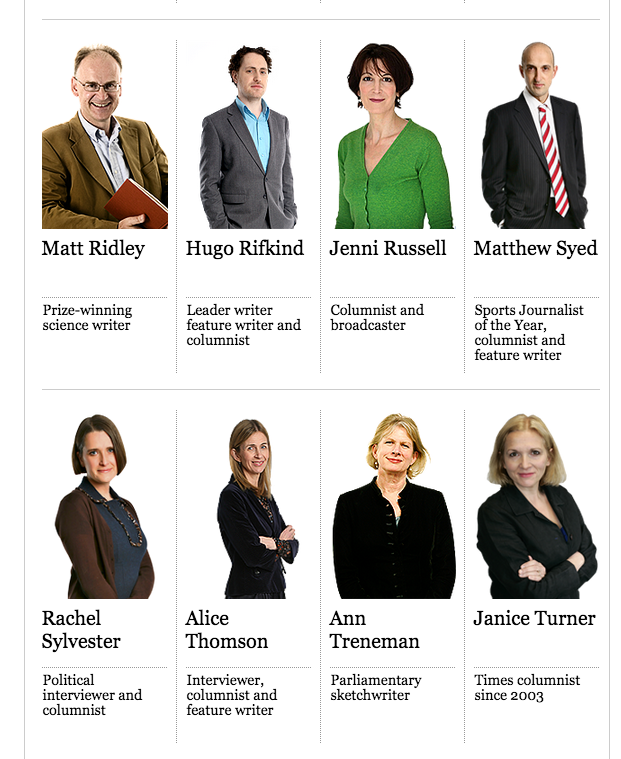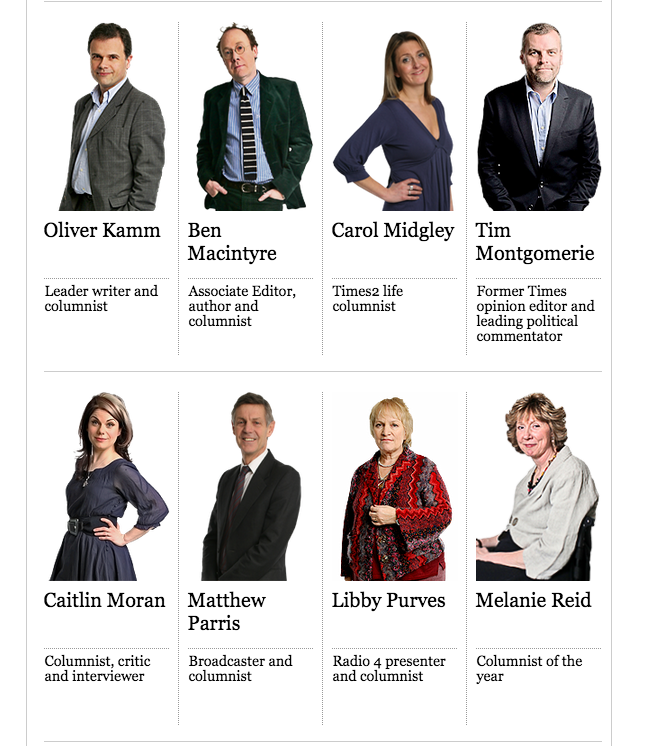Only Hereditary Journalists And The Well-Connected Can Afford To Send Their Children To State Schools
IS private schooling fair? Janice Turner writes in the Times:
Having experienced both systems, I agree with Jonathan Leigh, Master of Marlborough College. Private schools must avoid becoming “isolated enclaves of privilege”, he said this week, by engaging with the local community and neighbouring state schools. Maybe not least for the benefit of their own cocooned kids.
It’s about playing fields. They’re not level. The private school parents have to pay a fortune for greenery; the state-school pupils have to find gaps between housing schemes.
But Janice has another view. This one is about an ‘us’ and ‘them’ culture:
What an unreal bubble is a London private school. In the midst of the most ethnically mixed city on earth, rare black students may be dragged out of lessons to pose for prospectus photos to give an illusion of diversity.
What utter balls. The London chidlren leave school. They see faces. And for rare black faces look at the Times’ columnists. No need to look at schools.




Spot the black faces among the heritary journalists, the well connected and the white and talented?
Turner adds:
Children with horses, pools and taxi accounts have Knightsbridge birthday parties when their mates would prefer Pizza Express.
These are not the middle and working classes striving to give their children the best, the plumbers, builders and shop workers going without to pay for their children’s education, or hoping to. These are the mega-minted few. They’ve always been rich and out-of-reach. And, by the way, schools in Knightsbridge have rubbish playing fields. The nannies take the kinder to the gated garden squares and for weekends at the country houses.
In London, only the very rich and connected can afford state schooling. The rest have to toil and try to do better. You may recall the words of TV actress Arabella Weir. She opined in the Guardian (natch.):
Why I would never send my kids to private school. The underlying snobbery and racism are shocking.
She then noted, and without any irony, that school was a lesson in how the lesser classes live:
At a state school your kids will learn to live alongside and appreciate other kids from many diverse and different cultures. They will learn that privilege is not a birthright, that it has to be earned, along with understanding that they need to earn their place in society and earn the right to succeed. They will learn street sense, who to be wary of, who to avoid, how to keep their heads down and how and when to stand up for themselves. They will learn to make room for people of different abilities.
They will understand the lower abilitied and more ethnic. Arabella, not a work of parody, got better:
My 10-year-old daughter now walks home from school alone with a classmate. They walk through several council estates without even thinking about it…
But they don’t live there. They just walk through in way that David Attenborough might wander though a jungle or Arabella a Bangkok street market.
I do wonder what people think would happen to their children if they went to school alongside a less advantaged child.
Dunno. Maybe mum would get a column in the Guardian? Or maybe they’d grow up to be rich and intrepid, like mum’s family. As Arabella said:
When my parents moved to London in the early 1960s, they were advised by their Oxbridge-educated peers against buying their Camden house because “people like us” didn’t buy houses near council estates.
Arabella’s mum’s family owned an island in Scotland. Arabella’s dad also had a column in the Guardian, well, it’s an obituary.
The former diplomat Sir Michael Weir, who has died aged 81, was one of the more distinguished Arabists of his generation… he served mostly in the Arab world, including two tours in Cairo, where, from 1979 until his retirement in 1985, he was British ambassador. In 1981 he was sitting behind Anwar Sadat when the Egyptian president was assassinated and the Belgian ambassador was severely wounded beside him…
Finally, in 1979, Weir was perhaps disappointed not to have been appointed to Iran…but becoming ambassador to Egypt continued his long association with the Middle East and proved a busy and happy time for his new young family.
Wow. He really was connected. When your dad died, you placed an announcement in the local paper, maybe. Arabella got a column in the Mail:
My parents split up when I was nine when my father went to live abroad, taking up his posting as a diplomat in the Middle East. My two older brothers were away at boarding school, so my four-year-old sister and I were left with our mother. After a few turbulent months, desperately missing my father and fighting with Mum over everything and nothing every day, I went to live with Dad in Bahrain.My year alone with him there was probably the happiest of all my childhood that I am able to remember. The island of Bahrain, situated in the Persian Gulf, was then, in the late Sixties, sparsely populated by locals, visiting Gulf Arabs and a few foreign missions – it wasn’t important enough politically then for embassies… For me, school started at 8am and ended at 12 noon – it was too hot in the afternoon for schoolwork.
You see, the really connected and privelged use state school to remind them how tolerant, educated and understanding they are. Then their children grow up and score great internships and the cooler jobs. And the best bit that because of that State education they will now how to talk to the poor, blacks, white working classes, Jews and Pakistanis. Maybe they’ll make a TV show about them.
So. Back to Janice. She is “married to Ben Preston, a former deputy editor of The Times, and the son of Peter Preston. The couple have two sons”. Maybe one of the boys will get to work in the family business. Maybe mum and dad will prop the door open. Who knows? She says:
Football teams take coaches across southern England to compete against Charterhouse or Eton when they could play their local comp. School trips costing £3,000 go to Japan, India or Washington DC. A-level drama productions are performed in theatres larger than the Young Vic. Work experience placements, arranged through parental connections, include blue-chip banks, film companies and a week in the studio of a famous photographer.
It’s about being reassuringly expensive. The wealthy will pay for exotic field trips because the school has rightly worked out that its teachers can enjoy subsidised jollies to glamour spots and mum and dad will pay for it. The private school is a business. The state school is a need.
Look back at the Times list of columnists. See any connected names who might have had a little boost at the right moment? Lucky them. Isn’t it what we all want?
There is, I contend, a difference between putting your child in private school at eleven, when it is about education, and at four when it’s about snobbery.
No. It’s about getting them into the better schools – including state grammer schools – by way of smaller classes and better equipped teachers feeling freer to teach.
If private schools are not elitist, why do they not open their doors more generously?
Because they are businesses. And people vote with their feet. Golf clubs don’t open their doors to the poor. The Olympic legacy has not led to expensive sports clubs having cheap, open afternoons for non-members.
Why do their teams not play local schools or if these schools lack teams, why not help set them up, sharing the sports grounds? Why can’t they co-produce school plays, pool their parental contacts for work placements?
If the customers want it, the private schools will do it. But they don’t. So, they won’t…
Posted: 20th, September 2014 | In: Key Posts, Reviews Comment | TrackBack | Permalink


